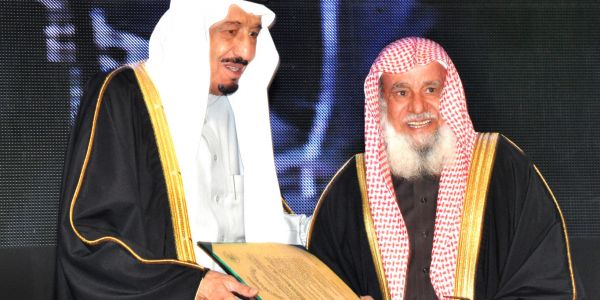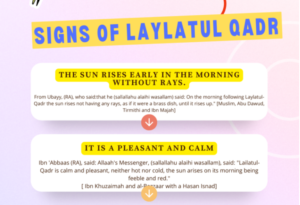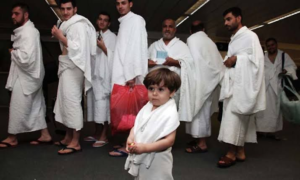Sulaiman Al-Rajhi Rags to riches story Sulaiman Al-Rajhi-From earning 6 SR/month to donating 16 billion.
You must have heard about Saudi Arabia’s rags-to-riches billionaire Sulaiman Al-Rajhi. Have you ? Do you Know about his life style and Islamic Values. Let us read today about Sulaiman Al-Rajhi, some one we can truly look up for inspiration.

Sulaiman Al-Rajhi is also a world-renowned philanthropist. He is the founder of Al-Rajhi Bank, the largest Islamic bank in the world, and one of the largest companies in Saudi Arabia. As of 2011, his wealth was estimated by Forbes to be $7.7 billion, making him the 120th richest person in the world. His flagship SAAR Foundation is a leading charity organization in the Kingdom. The Al-Rajhi family is considered as one of the Kingdom’s wealthiest non-royals, and among the world’s leading philanthropists.
Sulaiman Al-Rajhi Rags to riches
Sulaiman Al-Rajhi’s first job at 6 SR/month
Sulaiman Al Rajhi started working when he was a nine as a porter, carrying shopping luggage for shoppers at Riyadh;s Al Khadra market.
- At 12, he started collecting palm dates for a job that paid him no more than six Saudi Riyals per month. He used to sleep on gravel at the same workplace wearing the same outfit he wears during his hard work.
- At one point of his life, he worked as a cook at one of Riyadh’s hotels.
- Among the various jobs he did as a teenager, he worked as a wholesale seller of imported kerosene.
- He worked as a waiter at one Saudi contracting company for a mere 60 Saudi Riyals per month, before starting his own grocery shop.
- At 15, Al Rajhi had to sell his shop in order to afford marriage expenses. He spent all his savings on the marriage ceremony.
- He later worked for his brother, Saleh Al Rajhi, at the latter’s currency exchange enterprise, before the pair established a second branch for the same enterprise in 1956.
- His real breakthrough came in 1970, when he separated his business from his brother and opened his own currency exchange company, which he later expanded with more than 30 branches across Saudi Arabia.
- He took his business to a number of countries across the Arab world, including Egypt and Lebanon, where he made massive gains by extending his work.
When asked about the key to success, Sulaiman Al Rajhi has often reiterated that it was all about “putting one penny on top of the other”.
“I used to keep every penny I earn for the next day. This was what enabled me to have a starting point that I built on for my future,” he says.
In an interview with Muhammad Al-Harbi of Al-Eqtisadiah business daily, Al-Rajhi speaks about how he was able to succeed in convincing chiefs of the leading central banks in the world, including that of the Bank of England, nearly 30 years ago that interest is forbidden in both Islam and Christianity, and that the Islamic banking is the most effective solution to activate Islamic financing in the world and make it a real boost to the global economy.
Unlike other billionaires, who splash out their fortune and live a lavish lifestyle, Al Rajhi is known for his humble and somewhat ascetic approach.
Sulaiman Al-Rajhi donated $16 billion in charity
Sheikh Suleiman al-Rajhi, revealed the value of his personal endowment, believed to be the highest amount in the Islamic world.Rajhi said during a Snapchat interview with social media celebrity, Mansour al-Reqeiba, that he gave his sons, daughters and their mothers their legitimate share of the $16 billion Islamic endowment.
“This is considered one of the largest endowments in the Islamic world,” Mansour commented.
The Islamic endowment, known as waqf in Arabic, is an inalienable charitable endowment under Islamic law, which typically involves donating money or other assets for Muslim religious or charitable purposes with no intention of reclaiming the assets. Reference
Al-Rajhi is still very active and hardworking even in his 90s with youthful spirits. He begins his work daily after morning prayers and is active until Isha prayers before going to bed early
Sheikh Suleiman, have you become a poor man again?
Yes. Now I own only my dresses. I distributed my wealth among my children and set aside a portion for endowment to run charity projects. As far as I am concerned, this situation was not a strange one. My financial condition reached zero point two times in my life, and therefore I have had the feeling and understanding (about poverty) well. But now the feeling is accompanied by happiness, relaxation and the peace of mind. The zero phase in life this time is purely because of my own decision and choice.
Why did you choose this path?
All wealth belongs to Allah, and we are only those who are entrusted (by God) to take care of them. There were several reasons that prompted me to distribute the wealth and that resulted in performing this virtue. Most important among them is to foster brotherhood and love among my children and safeguard their harmonious relationship. This is more significant than any wealth in this life. I was also keen not to be instrumental in wasting the precious time of courts in case of any differences of opinion among them with regard to partition of inheritance.
There are several examples that everybody could see when children entered in dispute over wealth and that led to the collapse of companies. Nation has lost many large companies and their wealth that we could have been saved if we tackled the matter in a right manner. Apart from this, every Muslim should work on some endowments that could benefit him in the life after death. Likewise, I prefer my children to work on developing wealth, which they inherit after my death, during my lifetime itself rather than I continue working to increase them.
Are you getting enough free time after the distribution of wealth?
As earlier I am still working on developing endowments. I will donate and give alms from it until Allah takes over this trusted deposit. I have worked out a meticulous scheme for this endowment and developed it with the support of specialist consultants and agencies. This idea struck me long before. Usually people in the Islamic world set aside one-third or one-fourth of their wealth for endowment and that will be effective only after their death. But in my case, I decided to implement this decision in my lifetime itself.
So I invited my children to Makkah during the end of Ramadan and presented the idea in front of them. They readily agreed it and then I distributed my wealth among my children in addition to setting aside a part of it for endowment. I sought the help of consultants to facilitate the procedures for the distribution of all my assets including properties, real estates and stocks, and that was completed in a cordial atmosphere. All my children are now fully satisfied with my initiative and they are now working on these properties in my lifetime.
How much wealth you distributed among children and set aside for endowment?
He laughed without giving an answer.
How do you feel now about your projects?
I would like to point out that there were some factors that prompted me to make investments in certain specific areas. My experiment in money exchange was the temptation to set up a bank. The absence of any Islamic banking was also another factor in establishing Al-Rajhi Bank, which is now the world’s biggest Islamic lender by market value. I began the experiment with opening an office in Britain where we introduced Islamic banking system at a greater level. The experiment was a success and it had received total backing of the Saudi Islamic scholars at that time.
I still recall the application made for getting license for the bank was turned down in the beginning. This was because the concerned British officials did not have any idea about Islamic banking. Therefore, I went to London and met with the manager of the Bank of England and two of his deputies.
I told them that Muslims and Christians see interest as forbidden (haram), and the Muslim and Christian religious people are unwilling to make transactions with banks based on interest and instead prefer to keep their cash and other valuables in boxes at their homes. I tried to convince them that (if we establish Islamic banks) this money would be helpful to strengthen the world economy. These talks were helpful in convincing them and they agreed to open Islamic banks.
Then I traveled widely throughout the world in the West and East, and met with the chiefs of central banks in various countries and explained to them about the salient features of the Islamic economy. We started working and achieved success through launching it in the Kingdom and implementing it in London. When I returned to the Kingdom from London, I met the late Grand Mufti Sheikh Abdul Aziz bin Baz and Sheikh Abdullah bin Humaid, and informed them about the plan saying: ‘We would reach, by the grace of Allah, the Islamic banking within a stipulated period of time.’ They praised me for the initiative.
We started aggressively implementing the project and that is in the form of Al-Rajhi Bank as you see now. Regarding Al-Watania Poultry, the idea of establishing such a venture struck me after my visit to a poultry project abroad. I saw that the way of slaughtering chicken was not proper. Then I decided to make investments in the field of poultry after considering it as a duty to my religion and nation.
I started the project even though making investments in poultry involved high risks in those days. Now Al-Watania has become a mega Saudi project that is instrumental in achieving food security in many respects. The company enjoys a 40 percent market share in the Kingdom, and Al-Watania chickens are naturally fed and halal slaughtered in accordance with the Shariah principles.
What about your insistence on introducing organic farming through Al-Watania agricultural projects?
As you see, now I am 85 and still enjoy good health. If we pursue organic farming as our healthy food style, we can bring down cost of treatment to a great extent. We made several experiments in the field of organic farming. Our numerous experiments met with setbacks in the beginning. This prompted many engineers and workers to reach a conclusion that it is impossible to have organic farming and profit together.
In the beginning, they were firm in their view that this would not at all be successful. But I insisted that it would work and continued compelling them to proceed with the venture. At one time, I took a firm position and told them either to do organic farming or quit. Now we are reaping the fruits of this lucrative business in line with my vision to provide only the healthiest, safest and most trustworthy food to consumers. Al-Watania Agricultural Company stopped using chemicals and artificial fertilizers and focused exclusively on organic methods such as the use of pest insect repellants and animal manure.
Your austerity and thriftiness on spending are well known. Please comment?
I am not a miser. But I am always vigilant against extravagance. I always try to impart this lesson to all those working with me whether it is in banking or poultry or other projects, and I am more concerned about it when it is coming to the case of my children. In the past, I never gave money to my children when they were young in return for nothing. When any one of them approached me to give them cash, I asked them to do some work in exchange for it. In our life, we practice some extravagance without being aware of it.
But it affects our whole life, exhausting us and putting a burden on our country. For example, there is no logic in putting heavy curtain on our windows and then lighting lamps in daytime when we get sunlight free of cost while electric lamps are costly.
Despite all your wealth, why don’t you still have a private aircraft?
Let me tell you that I have many planes but they belong to various airlines. I have ownership in all of them to the tune of the ticket fare that I pay for each travel. I always travel in economy class with the conviction that Allah bestowed us wealth not for showing arrogance or spend extravagantly but to deal with wealth as a trusted property.
Reference: Wiki, Al Rajhi Bank , English Arabia
Discover more from Islam Hashtag
Subscribe to get the latest posts sent to your email.





